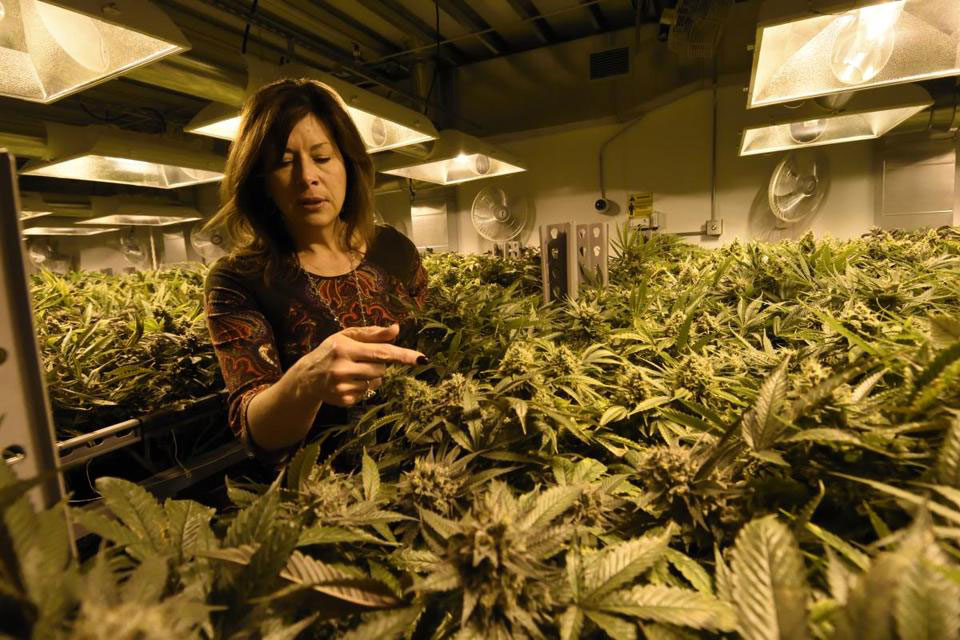Colorado and other States are considering strategies to protect their legal marijuana industry from potential measures from the White House, after its press secretary, Sean Spencer, suggested that there would be more strict federal regulations regarding marijuana.
The western state is considering a bill that would allow marijuana growers and retailers to reclassify their recreational products to medical cannabis since the Trump administration said it would not restrict cannabis destined for medical purposes. However, this measures might cost hundreds of millions of dollars in tax collections for Colorado.

“If there is a change in federal law, then I think all of our businesses want to stay in business somehow. They’ve made major investments,” said Sen. Tim Neville, a suburban Denver Republican who sponsored the bill
The Trump Administration is likely to restrict recreational marijuana
Last month, Sean Spencer alarmed the marijuana producers by saying that there would be strict regulations. This sets a new difference between the former and the current administrations since under President Obama mandate most of the legislation on the matter came from each state.
However, the good thing about all of this is that Trump continues to support cannabis for medical purposes. Therefore it doesn’t seem like he is setting a strict federal legislation that would compromise the access to medical marijuana, and this matter will continue to be under the states’ considerations.
On the other hand, access to legal recreational weed might be compromised. Nobody can tell how strict these measures are going to be at the moment. There could be measures to keep minors away from pot and restrictions like prohibiting new states from legalizing recreational marijuana.
Since 1996, more than half of U.S States have legalized medical cannabis, and since 2012 people from eight states have chosen to allow the sale of legal recreational marijuana for adults.
In 1995, only 25 percent of the population were for legalizing weed, today 60 percent of the people would support national legalization, according to a survey by Gallup.
This is similar to the findings of a different poll, conducted by independent Quinnipiac University, which claimed that 59 percent of Americans support national comprehensive marijuana legalization for medical purposes.
At the moment 22 states are left to legalize medical pot, Republicans lead most of them. Practically half of the country hasn’t started popular consultation processes to legalize cannabis.
“It would be very harmful to the state if it reverts back entirely to an underground market,” said Mason Tvert, a spokesman for the Marijuana Policy Project, a pro-legalization activist group.
Measures would cost more than $100 million a year to Colorado
Currently, it is hard to say how many businesses would be affected by the future federal actions. It is questionable to think that because of these changes there is not going to be any recreational marijuana from now on, but the sustainability of the industry might be at risk.
However, to minimize the costs for the weed industry Colorado’s bill would allow about 5000 licensed recreational cannabis growers to reclassify their weed. The measure states that licensed producers can become immediately medical licensees due to a change in local, state or federal law.
This action aims to protect the grower’s inventory in case of changes at a national level. Nevertheless, this could cost about 100 million dollars a year to Colorado, since the taxes on medical pot are smaller that those on recreational weed, 2.9 percent versus 17.9 percent.
Colorado has about 827,000 cannabis plants growing at the moment. More than half of it is destined to recreational purposes. Therefore, it seems pretty clear why legislators want to protect it by allowing producers to switch to the medical pot market.
“It’s a big deal for our taxation system because this money has been coming in and has been set aside for this, that and the other,” said Sen. Lois Court, a Denver Democrat who voted against the bill.
The most affected might be the students since every year $40 million – that come from taxes on recreational pot – are used in Colorado to build schools. As well, the revenues from pot go to police officers training programs and public-education campaigns that warn teens about the consequences of marijuana consumption.

Other states are taking actions to protect marijuana industry
Though Colorado might be the first to be ready to counteract new measures set in the White House on recreational marijuana, in Oregon, there is a pending bill that aims to protect the names and information of recreational marijuana buyers by prohibiting shops to keep an internal record of customers’ data.
Meanwhile, in California, they are discussing a law that would not allow the cooperation of local and state authorities with the federal authorities on investigations regarding cannabis operations that are legal in California.
Some members of the Congress have already talked about blocking the federal action toward marijuana legalization in the states.
Source: Daily News
